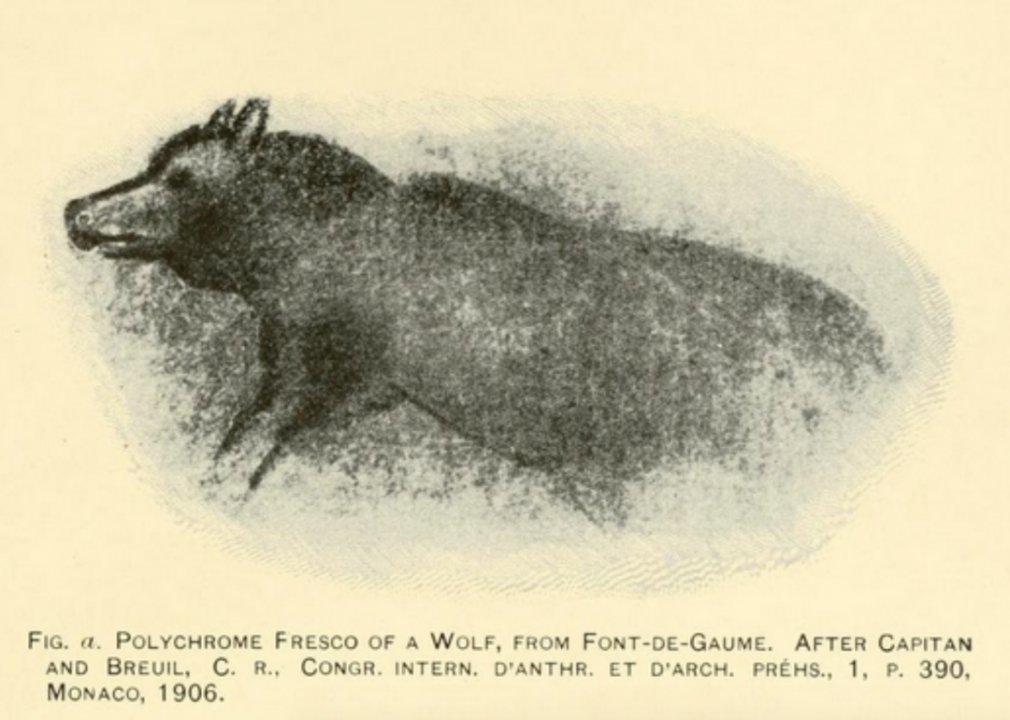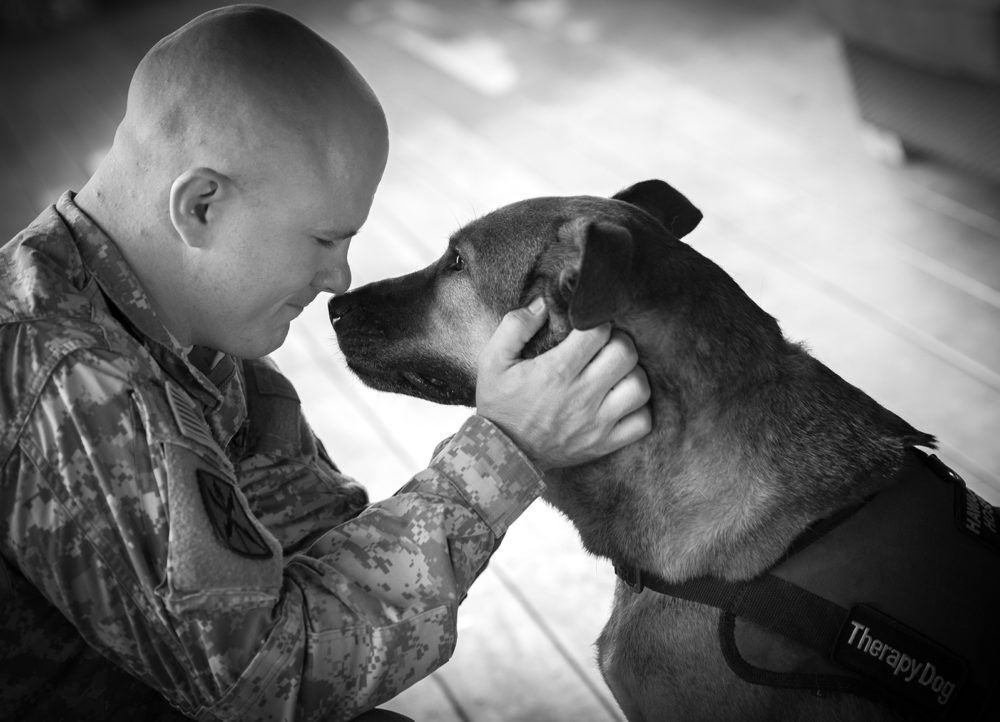Animal-Assisted Therapy
The use of dogs in Animal Assisted Therapy is based on the evolutionary bond between humans and dogs, along with a growing body of scientific evidence that regular interactions with a dog in a therapeutic setting yield powerful effects on physical and mental health.

Our helping relationship with dogs goes back to the beginning of humankind, with ancient cave drawings depicting dogs alongside our early human ancestors, sharing in meals around the campfire, and assisting in hunts.
In the thousands of years since, canines have continued to evolve into ideal human companions. They are more attuned to our emotion than any other animal– even our closest living relative, the chimpanzee– and they respond to our needs with extraordinary affection, loyalty, and caring. We, too, have adapted in kind: Just making eye contact with a dog is shown to significantly lower cortisol (stress hormone) levels and blood pressure, reduce stress and anxiety, diminish pain, and facilitate learning.
Animal-assisted therapy has been shown to be effective in reducing a wide variety of mental health symptoms and can help clients of all ages engage more fully in therapy. Having a dog in the room is often comforting for clients who are new to therapy or reluctant to talk about their difficulties.
At the Curry Psychology Group office, clients can ask to be accompanied by our therapy dog, Maia, in their sessions, (and they often do!). Maia is a gentle and cuddly companion for our clients, and remembers each new friend when they return.
Below are just a handful of the benefits demonstrated by research on Animal Assisted Therapy:
For Depression, Anxiety, and Post Traumatic Stress:
- Reduced symptoms, better coping ability, increased motivation, increased self-esteem.
For Children’s Learning, Academic Progress and Social Functioning:
- Improved reading and problem solving ability, improved empathy for peers, better adherence to instructions, faster motor-skills task completion.
For Autism Spectrum & Childhood Developmental Disorders:
- Improved language use, diminished cortisol awakening response, greater sensory seeking, greater social seeking, less inattention, less sedentary behavior, more playful, improved focus, more aware of social environment.
For Schizophrenia and Severe Mental Illness:
- Improved motivation, more frequent and appropriate social interaction, improved quality of life.
For Substance & Alcohol Abuse/Dependence:
- Reduced relapse rates and improved treatment retention.
For Dementia & Degenerative Brain Disorders:
- Improved memory retention, improved food intake and nutrition, increased interaction, reduced apathy and depressive symptoms.
Speak with an Animal Assisted Therapy specialist in Newport Beach.
Our highly-trained Newport Beach animal-assisted therapy professionals are ready and able to help you through the process at every turn. To start your journey, contact one of our therapists in Newport Beach that specializes in animal-assisted therapy.
Curry Psychology Group offers animal-assisted therapy in Newport Beach, Costa Mesa, Huntington Beach, Irvine, Santa Anna, Fountain Valley, Lake Forest, Laguna Beach, Laguna Niguel, Mission Viejo, and all of Orange County. If you have any questions about animal-assisted therapy or are not sure about how to get started, contact us anytime!




